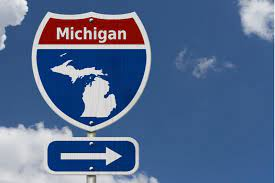
Michigan lawmakers have introduced a series of bills intended to eliminate access to popular flavored vapes and other low-risk nicotine products, and price the remaining products out of reach for many consumers. The legislation, promoted by anti-tobacco and anti-vaping activist groups, is similar to bills previously introduced in the state.
The eight-bill package includes several components that will negatively affect people who vape or use other low-risk nicotine products:
·Bans flavors other than tobacco in all nicotine and tobacco products (SB 649)
·Establishes a 57 percent wholesale tax on all vaping products, nicotine pouches and smokeless tobacco (SB 648)
·May ban online sales to consumers (SB648)
·Repeals preemption of local restrictions on vape or tobacco products (SB 647)
The Consumer Advocates for Smoke-Free Alternatives Association (CASAA) has issued a call to action, asking Michigan residents to contact their state legislators and urge them to oppose the tax and flavor ban bills. Vapers and others who support harm reduction can send a pre-written message from CASAA in seconds, or can replace the pre-written message or modify it with their own thoughts.
The bills have been assigned to the Michigan Senate’s Committee on Regulatory Affairs. Committee hearings on the bills have not been scheduled. The state Senate returns to session Jan. 10.
How would these bills affect Michigan vaping consumers?
While some of the legislation would have little effect on adults who depend on vaping products, the flavor ban and tax would force many vapers back to smoking, and create a black market for products widely acknowledged to be less harmful than combustible tobacco. A 57 percent wholesale tax would be among the highest vape taxes in the country.
The flavor prohibition and tax, if passed, would probably shut down most vape shops, and would eliminate flavored vape and nicotine pouch sales in convenience stores and other outlets. If legislators succeed in banning online sales, consumers in remote areas would be hit especially hard. As in other states that have banned flavored vape products, much of the market would then move underground, where taxes are not collected and age laws are ignored.
Michigan residents who live near the Ohio, Indiana and Wisconsin borders would maintain easy access to popular vape products sold in those states, while many other Michigan vapers would revert to smoking, or be forced to buy potentially substandard products from black market sellers.
Research shows that vapes and cigarettes are economic substitutes; when policies create a market advantage for one kind of product, its sales increase, and sales of the other decrease. Studies show that taxing vapes increases cigarette sales and smoking, including smoking by minors. Banning flavors also increases smoking.
